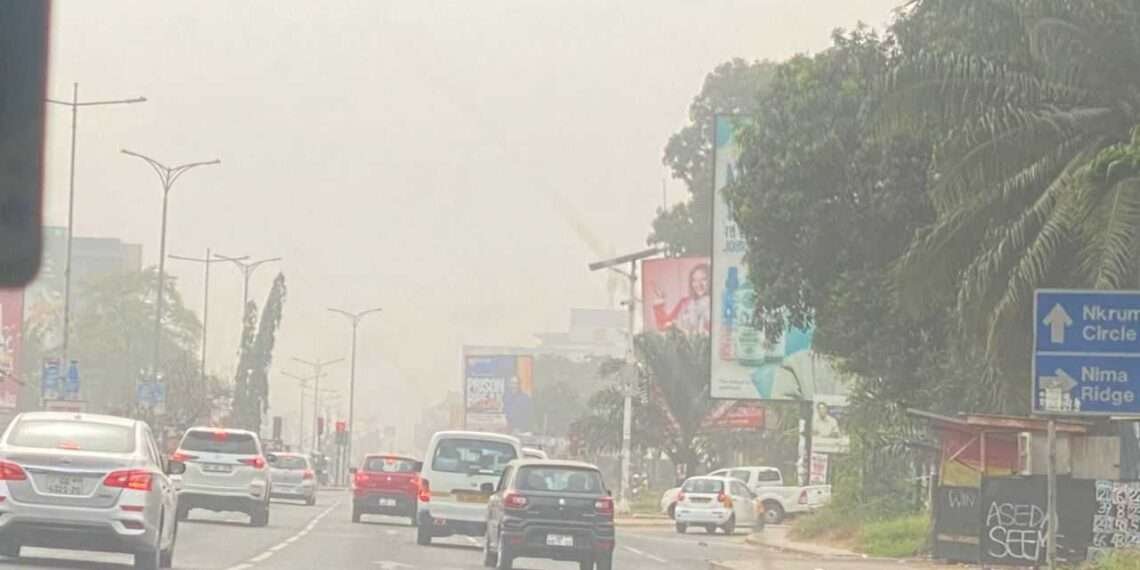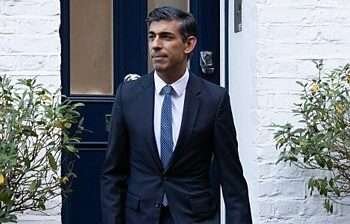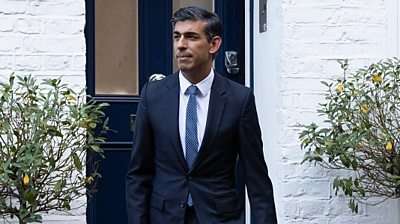In 2019, Ghana faced significant health challenges with approximately 23,000 deaths attributed to malaria, 14,000 to HIV/AIDS, and 10,000 to tuberculosis.
However, a more insidious threat emerged: Air pollution, which was responsible for at least 28,000 deaths that same year has become a major concern in Accra, where high levels of particulate matter significantly affect respiratory health. This alarming statistic underscored the severity of air pollution as a public health issue in Accra.
In a stakeholder engagement, Dr. Louisa Ademki Matey, the Ayawaso West Municipal Health Director, explained the health impacts.
“Cataracts, eye problems can be affected by these indoor air pollutants, and for the past 3 years in most districts, you will see that respiratory tract infections are high on there.”
Dr. Louisa Ademki Matey the Ayawaso West Municipal Health Director
Dr. Ademki added that vulnerable groups, especially those with limited resources, suffer the most.
“If you are having challenges with resources and you are getting sick because of your practices, it’s just a vicious cycle, because you don’t have the money, now you are getting sicker. It just perpetuates the poverty.”
Dr. Louisa Ademki Matey the Ayawaso West Municipal Health Director
The major contributors to Accra’s pollution include factories, waste burning, and an aging fleet of public transport vehicles, particularly the old trotros. These sources release large quantities of pollutants into the air, exacerbating the health risks for residents. Moreover, Dr. Ademki noted that the respiratory strain experienced by residents is palpable, highlighting the broader public health crisis linked to pollution.
Insufficient Research and Efforts for Improvement
Mr. Desmond Appiah, country lead of the Clean Air Fund, emphasized the need for comprehensive research: Mr. Appiah expressed frustration over the insufficient local research in these related activities. Despite the severe impact of air pollution, there is a lack of localized research linking pollution levels to health outcomes. He noted that;
“The outdoor or ambient air quality is getting worse, and so it means something is still not clicking, something is still amiss. The only bad part or sad part is that there’s not a lot of localized research, and that’s what we are trying to change in our system.”
Mr. Desmond Appiah country lead of the Clean Air Fund
To address this issue, Accra has joined the Bridge Cities Initiative, a collaborative effort by the Clean Air Fund, C40 Cities, and Bloomberg Philanthropies. This initiative aims to clean the air, cut carbon emissions, and enhance public health in cities worldwide. The goal is to reduce pollution levels by approximately 30 percent.
“We hope by the end of the process of the green Accra, we would have been able to reduce the pollution levels by a good 30 or so percent because, at the rate that it is going, it is not healthy for any of our health.”
Mr. Desmond Appiah country lead of the Clean Air Fund
Real-Time Monitoring and Local Actions
The Bridge Cities Initiative includes the installation of a network of 60 low-cost sensors and reference grid monitors across Accra to provide real-time air pollution levels. This data is crucial for understanding pollution patterns and implementing effective interventions.
Meanwhile, Mr. Andrew Nii Apai Aborhey, the municipal environmental health officer Adentan, oversees these efforts. He reported that early data from the sensors have been instrumental. He pointed out; “We’re seeing high levels quickly. It told us that something was wrong, quickly, we deployed people, they realized that there were issues.”
Moreover, Mr. Jacob Johnson Attakpah, project coordinator of the Green Africa Youth Organization (GAYO), highlighted their progress:
“Ensuring that we’re able to one compost the organic waste that we have, convince the hard-to-degrade or can organic waste into brackets for clean cooking and as well as recycling all the recyclables that are in the system to ensure resource efficiency and sustainable production and consumption.”
Mr. Andrew Nii Apai Aborhey the municipal environmental health officer Adentan,
According to the World Health Organization (WHO), adhering to air quality guidelines of 10 micrograms per cubic meter for pm 2.5 could prevent more than 1,000 deaths annually in Greater Accra. This statistic underscored the critical need for continued efforts to improve air quality. The combination of real-time monitoring, localized research, and targeted interventions represents a hopeful step toward mitigating the health impacts of air pollution in Accra. Addressing air pollution in Accra is an urgent public health priority. The high number of deaths attributable to air pollution, coupled with insufficient local research and the need for effective interventions, highlights the critical nature of ongoing efforts.
The Bridge Cities Initiative and local actions provide a framework for significant improvements but continued vigilance and research are essential to safeguard public health.
READ ALSO; Uncle Ebo Whyte Recounts How He was Smooched By Church Admirer




















